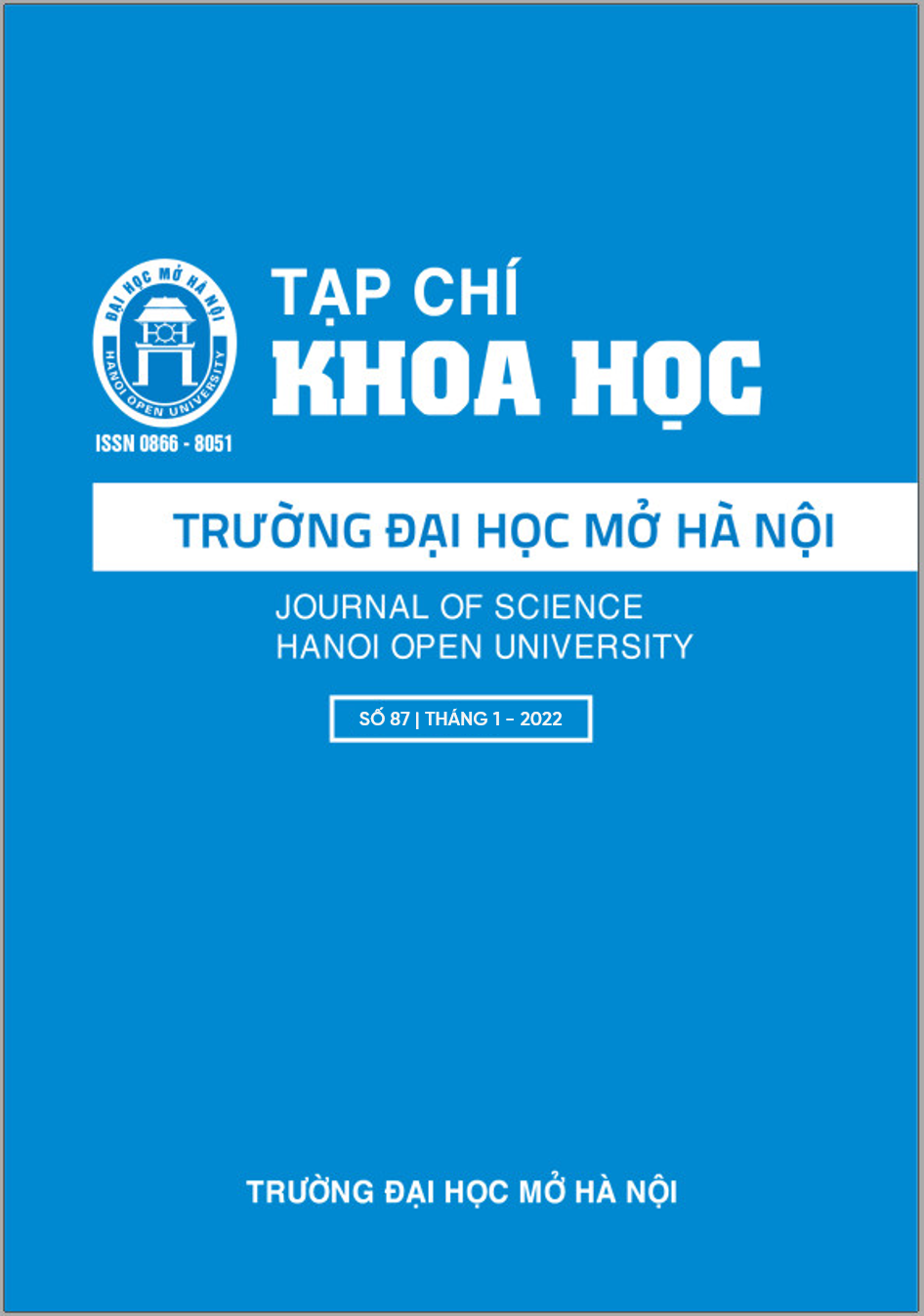APPLICATION OF TECHNOLOGY IN TEACHING AND LEARNING SPEAKING SKILLS ONLINE FOR THE FIRST-YEAR STUDENTS AT THE FACULTY OF ENGLISH, HANOI OPEN UNIVERSITY
Từ khóa:
technology application, solutions to improve speaking skillsTóm tắt
Applying teaching technologies in the context of teaching and learning English speaking skills online has become a major concern of educators to expand students’ background knowledge, enlarge vocabulary, improve pronunciation and develop communication skills. The article aimed at identifying the difficulties faced by the first-year students at the Faculty of English, Hanoi Open University (FOE, HOU) when learning English speaking skills online. The authors of the article conducted a survey to find out the current situation of teaching English speaking skills online of the first-year students at FOE, HOU. On the basis of analyzing the causes of inadequacies in the process of teaching English speaking skills online, the authors make some recommendations on the application of technology to improve the effectiveness of teaching English speaking for the first-year students of FOE, HOU, aiming to equip them with English capacities to find good jobs and develop careers in the globalized world.
Tài liệu tham khảo
[1]. Arnseth, H.C. & Hatlevik, O.E. (2010). Challenges in Aligning Pedagogical Practices and Pupils’ Competencies with the Information Society’s Demands: The Case of Norway. In Cases on Interactive Technology Environments and Transactional Collaboration: Concerns and Perspectives.
[2]. Carey, K. (2020). Is Everybody Ready for the Big Migration to Online College? Actually, no. The New York Times. https://www. nytimes.com.
[3]. Cheng, H. Y. (2012). Applying Twitter to EFL Reading and Writing in a Taiwanese College Setting. Indiana State University, the USA.
[4]. Dang, H. T. & Nguyen, T.H.N. (2014). An
Exploratory Study of ICT use in English Language Learning among EFL University Students.
[5]. Dang, X. T. (2013). ICT in Foreign Language Teaching in an Innovative University in Vietnam: Current Practices and Factors Affecting ICT Use. La Trobe University: Australia.
[6]. Davies, G. & Hewer, S. (2012). Introduction to New Technology and How they can Contribute to Language Learning and Teaching. Slough: Thames Valley University.
[7]. Hughes, R. (2002). Teaching and Researching Speaking. New York: Pearson Education.
[8]. Jung, S. H. (2006). The Use of ICT
in Learning English as an International Language. The University of Maryland, College Park, the USA.
[9]. Lang, P. (2004). ICT - Integrating Computers in Teaching. Frankfurt: Peter Lang.
[10]. Lightbrown, P. M. and Spada, N. (2006). How Languages are learned. 3 rd ed. New York: Oxford University Press.
[11]. Littleton, K. & Mercer, N. (2013). Interthinking: Putting Talk to Work. London: Routledge.
[12]. Miles C. & Kristin D. S. (2019). Skills for Success 3 . Oxford Union Press.
[13]. New Media Consortium. (2005). A Global Imperative: The Report of the 21st Century Literacy Summit. Retrieved from
[14]. Porter, L. R. (2004), Developing an Online Curriculum: Technologies and Techniques. Melbourne: Information Science Pulsing.
[15]. Quach, H. C. (2014). Impacts of Dyned Software on Students’ Listening and Speaking Skills. Danang, University of Foreign Language, Vietnam.
[16]. Rendall, H. & Davies, G. (2012). Using Word-processing and Presentation Software in the Modern Foreign Languages Classroom. Information and Communication Technology for Language Teachers. Slough: Thames Valley University.
[17]. Thornbury, S. (2005). How to Teach Speaking. London: Longman
